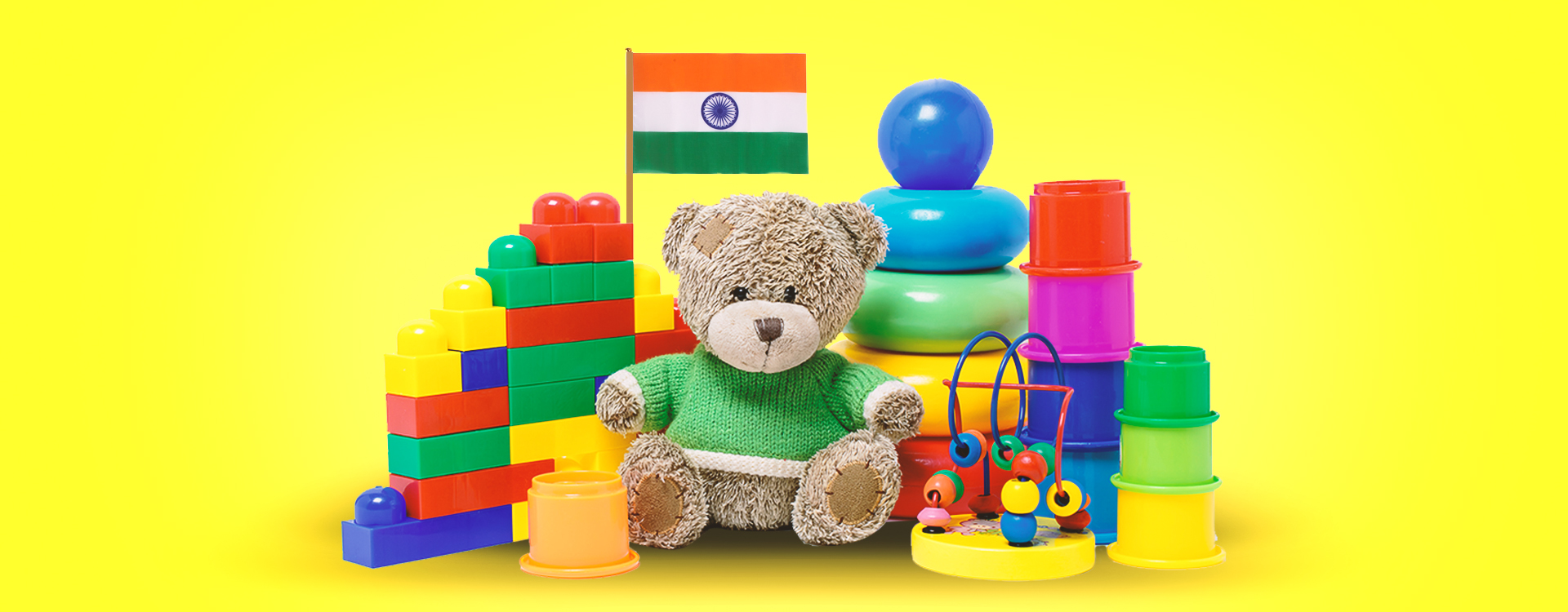Amidst an emerging wave of self-reliance, Indian industries are moving steadily towards acquiring self-reliant tactics and contributing to the ‘Aatmanirbhar Bharat’ mission. One industry that is trying its best to hone self-reliant skills is the Indian toy industry.
Many developments have taken place that have started the sector on a path to become a global centre for toy production. These efforts are slow but will indeed contribute to an ‘Aatmanirbhar Bharat’.
‘‘
Upscaling the Indian recyclable toys sector, the government and other industry stakeholders are re-building the industry, focusing on eco-friendly and natural materials.
This is aimed at pushing for recyclable materials and minimising the use of plastic in toys. Some Indian toy start-ups have started on this idea and are proudly donning the Made in India products tag.
Desi Toys
Desi Toys is a Mumbai-based toy company that creates toys with wood, fabric or metal, focusing on materials that are more durable than plastic. With specific toy products such as Gulel, Lagori, and Gilli Danda, Desi Toys has already partnered with retail toys giants like The Bargain Book Store, The Bombay Store, and Hamley’s to meet the growing needs of customers.
Ariro Wooden Toys
Established in 2020 and based in Chennai, Ariro Wooden Toys produces high-quality wooden toys made of Neem wood. The company has completed more than 10,000 orders in one year, reaching Rs 2.5 crore in annual revenue.
B2B model for others to follow in the toy industry
Selling toys with different products using the B2B model is an effective way for Indian toy-makers to grow their business. It could also help them compete with the Chinese monopoly in the traditional toys market.
The B2B model is suitable for bulk ordering of specific orders of toys. Therefore, manufacturers can quickly achieve scalability by making these particular toys and taking up more orders. In a B2B business, building relationships can create long-term value. Therefore, building a long-term relationship with bulk B2B buyers can ensure stable returns in the future.
Indian toy industry insights
The Indian toy industry is set to witness a shift in business-doing under the new B2B model and attract the attention of domestic and international markets. The size of the Indian toy market reached $1.23 billion in 2020, and the market is expected to grow at a compound annual growth rate of 12.2% from 2021 to 2024.
India’s toy industry’s global market share is 0.5%. Indian toy-makers are mainly found in the National Capital Region (NCR), Maharashtra, Karnataka, and Tamil Nadu, among other states. The industry is fragmented: 90% of the market is disorganised, and there are 4,000 toy companies in the SME sector.
How can new and small businesses succeed?
The current toy industry in India is about $1.5 billion. The sector remains severely undetected and untouched from the formal economy. It is essential to understand the industry’s potential and not to anticipate its unexplored potential in a negative light. On the contrary, this less explored sector offers enormous growth and success opportunities for new entrepreneurs and budding SMEs.
The government has approved 100% FDI in the toys industry to help local businesses and toy manufacturers secure funds. It can help companies raise capital to grow their business. With an annual export value of $130 million (2019-2020), Indian toy makers already have a primary network of global consumers. It can be increased by working in the above places.
In addition, Indian players possess the technical knowledge of precision equipment and can quickly develop the ability to deal with the shortcomings of models and structures. All these factors together will have a substantial positive impact on the Indian toy industry, and SMEs will be the main driving force of the industry in the future.




